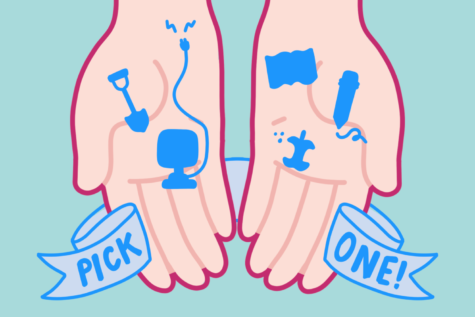OPINION | Disconnect between students, service learning

Tulane University prides itself on its dedication to public service, and the school’s commitment in this area has not gone unrecognized. In fact, The Princeton Review ranked Tulane as the No. 1 Most Engaged in Community Service for 2017, 2018, 2020 and 2021.
This title is well deserved, as Tulane students have completed over 2.5 million hours of community engagement initiatives in New Orleans and other parts of the world over the past 16 years. The impressive amount of community service hours logged are a result of the mandatory public service component, which is a part of Tulane’s core curriculum.
In order to receive their degrees, Tulane students must complete the public service graduation requirement. Students must complete one service learning course at the 1000, 2000 or 3000 level before the end of their fifth semester. After completing this first course, students may then take a 3000 level or above service learning course or participate in another program at the 3000 level.
Tulane’s strict specifications in this realm not only benefit and give back to the community but also enrich students’ educations by allowing them to apply classroom concepts to the outside world.
However, it is possible that the school’s definitive, and seemingly limited, course requirements may elicit frustration from students. Since service learning is necessary for graduation, students may lack passion or interest for the service learning course they are enrolled in.
Junior Gabrielle Gockerman, providing insight on her experience from her freshman year service learning course, said “I had to go to Sacred Heart Academy, an all girls school in New Orleans to volunteer at an after school program and it was disheartening when other volunteers did not put forth the same amount of effort.”
Gockerman explains that volunteer disengagement discouraged the more enthusiastic Tulane volunteers as well as the Sacred Heart students and made her doubt “the point” of the work they were doing.
It is likely that disengaged volunteers, like those identified by Gockerman, lack passion and interest in the public service they do because their work seems forced, as it was not the students’ personal decision to participate.
This poses an issue for Tulane’s public service department, whose mission is to benefit New Orleans, the region, the world and Tulane students themselves.
To minimize this issue, students should be educated on the array of service learning courses available to them and be advised to choose a course that they are enticed by, rather than taking the course that fits in with their schedule most readily or the course taught by the reportedly “easiest” professor.
In the spring 2022 semester alone, there are 93 service learning course options for students to choose from. Students should be encouraged to thoroughly explore their options, select what interests them the most and subsequently immerse and engage themselves in that service learning experience.
Additionally, students who struggle to find a service learning opportunity they are passionate about, despite dozens of options, can find an alternative. While enrollment in one actual service learning course is required for graduation, a second course is not always necessary.
To fulfill the second part of the service learning requirement, Tulane students have the option to opt out of taking a class, and participate in an alternate program: such as an academic service learning internship, a faculty-sponsored public service research project or a service-based study abroad program, among several other options.
Tulane’s rigorous and definite public service requirements may frustrate some students. However, this issue can be resolved if the information that outlines the extensive service options and resources available to students is more widely advertised, so that students know they do not have to settle on doing a service experience they do not feel passionate or excited about.
Your donation will support the student journalists of Tulane University. Your contribution will allow us to purchase equipment and cover our annual website hosting costs.


